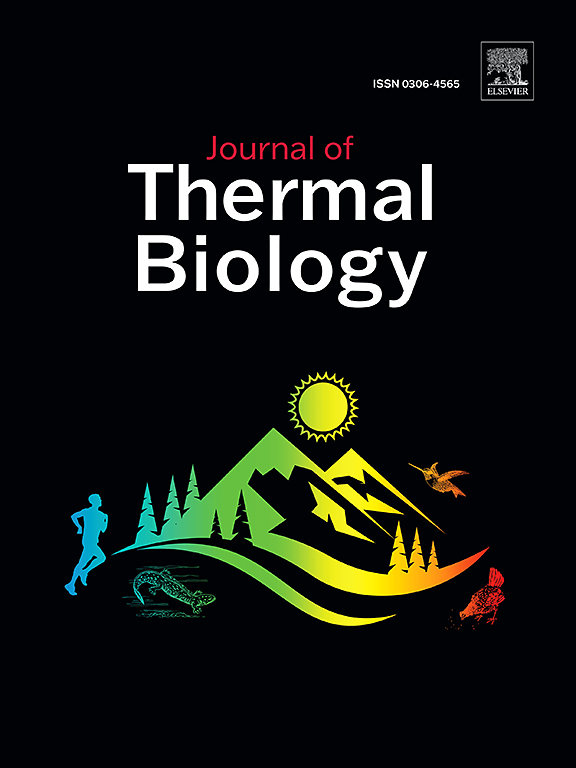Daily brief whole-body immersion in 14 °C water temporarily decreases glucose tolerance and insulin sensitivity
IF 2.9
2区 生物学
Q2 BIOLOGY
引用次数: 0
Abstract
Despite growing popularity, experimental evidence regarding the impact of daily cold exposure as an intervention for metabolic health has been lacking, especially with brief cold exposures. Thus, we aimed to investigate the effects of brief repeated whole-body immersion in 14 °C water on glucose tolerance, insulin sensitivity, and resting energy expenditure (REE) in young, nonobese adults. Twelve participants completed sixteen daily 10-min sessions involving whole-body immersion in 14 °C water. Changes in resting catecholamines, REE, and substrate oxidation were assessed in the overnight fasting state, while changes in glucose and insulin were assessed both in the overnight fasting state and during an oral glucose tolerance test before and 24 h after the intervention, and 1 week after the end of the intervention. The findings showed that daily brief cold water immersion (CWI) did not affect adrenaline, noradrenaline, REE, and substrate oxidation rate. However, daily CWI significantly decreased (p < 0.05) glucose tolerance as indicated by increased glucose area under the curve and insulin sensitivity as indicated by decreased Matsuda insulin sensitivity index. However, these effects were temporary and, after 1 week, the values returned to baseline. In conclusion, 16 daily sessions of brief 10-min whole-body immersion in 14 °C water temporarily decreased insulin sensitivity and glucose tolerance.
求助全文
约1分钟内获得全文
求助全文
来源期刊

Journal of thermal biology
生物-动物学
CiteScore
5.30
自引率
7.40%
发文量
196
审稿时长
14.5 weeks
期刊介绍:
The Journal of Thermal Biology publishes articles that advance our knowledge on the ways and mechanisms through which temperature affects man and animals. This includes studies of their responses to these effects and on the ecological consequences. Directly relevant to this theme are:
• The mechanisms of thermal limitation, heat and cold injury, and the resistance of organisms to extremes of temperature
• The mechanisms involved in acclimation, acclimatization and evolutionary adaptation to temperature
• Mechanisms underlying the patterns of hibernation, torpor, dormancy, aestivation and diapause
• Effects of temperature on reproduction and development, growth, ageing and life-span
• Studies on modelling heat transfer between organisms and their environment
• The contributions of temperature to effects of climate change on animal species and man
• Studies of conservation biology and physiology related to temperature
• Behavioural and physiological regulation of body temperature including its pathophysiology and fever
• Medical applications of hypo- and hyperthermia
Article types:
• Original articles
• Review articles
 求助内容:
求助内容: 应助结果提醒方式:
应助结果提醒方式:


